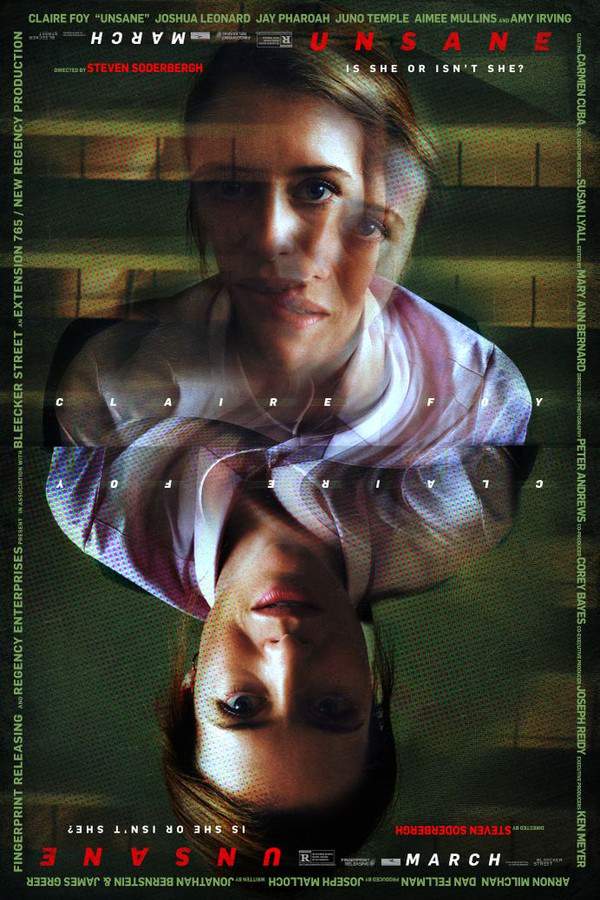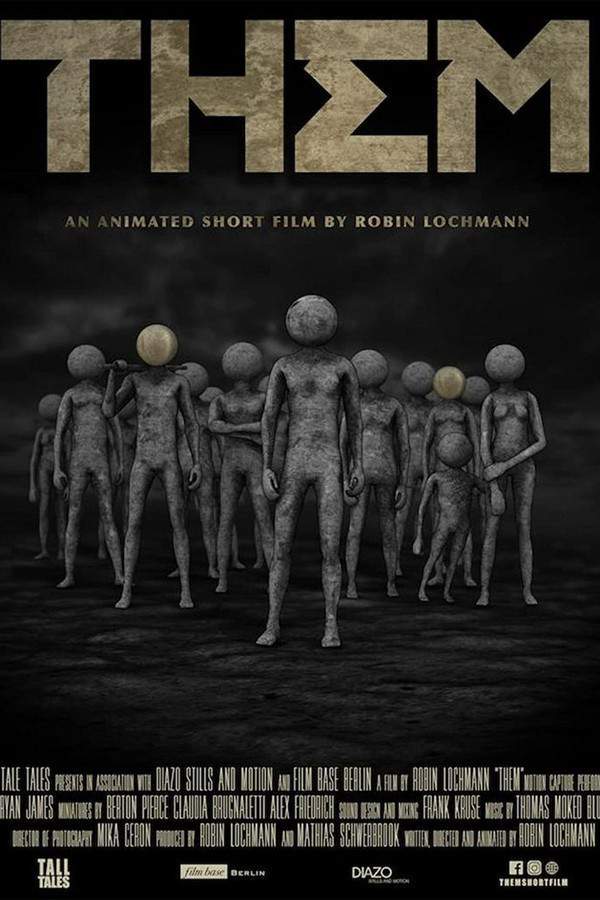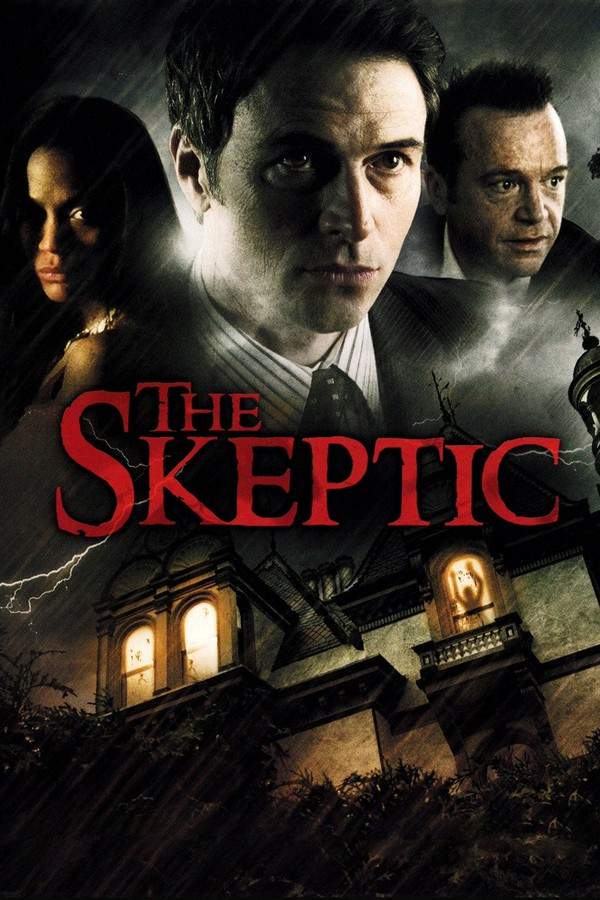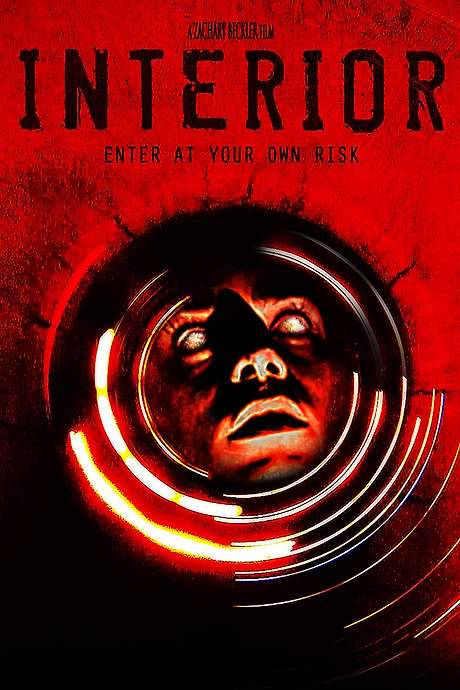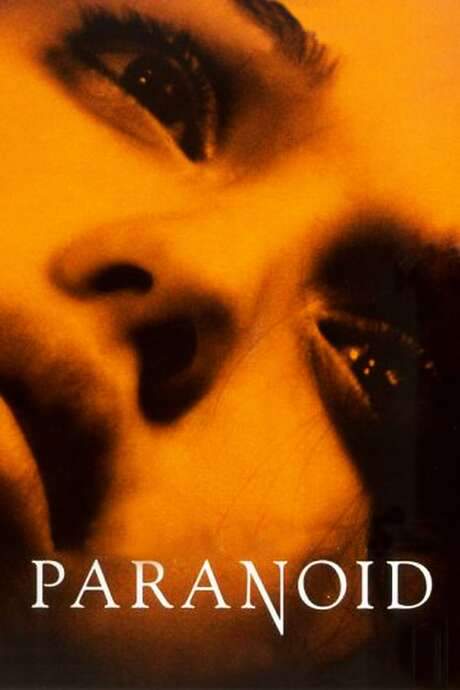
Tales That Witness Madness
Year: 1973
Runtime: 90 mins
Language: English
Director: Freddie Francis
Beyond ordinary insanity, reality bends in a nightmarish spectacle. Dr. Tremayne, a mysterious psychiatrist, oversees an asylum that shelters four distinctly troubled patients. When his colleague Nicholas arrives, Tremayne outlines his controversial, striking theories about each patient’s madness, revealing unsettling insights into the human mind.
Warning: spoilers below!
Haven’t seen Tales That Witness Madness yet? This summary contains major spoilers. Bookmark the page, watch the movie, and come back for the full breakdown. If you're ready, scroll on and relive the story!
Tales That Witness Madness (1973) – Full Plot Summary & Ending Explained
Read the complete plot breakdown of Tales That Witness Madness (1973), including all key story events, major twists, and the ending explained in detail. Discover what really happened—and what it all means.
In the clinic link episodes, Donald Pleasence as Dr. Tremayne, a psychiatrist in a modern mental asylum, reveals to his colleague Jack Hawkins as Dr. Nicholas that he has solved four special cases. Tremayne lays out the case histories of the patients Paul, Timothy, Brian, and Auriol, presenting each in turn to Nicholas. The accounts unfold as a measured blend of psychology, memory, and uncanny phenomena, building a quiet tension around what these histories imply about the nature of reality and madness, and setting the stage for an unsettling convergence at the end.
Mr Tiger
Paul, [Russell Lewis], is the sensitive and introverted young son of constantly bickering parents, Sam [Donald Houston] and Fay Patterson [Georgia Brown]. In the midst of their troubled home, Paul forms a bond with an “imaginary” tiger who seems to reflect his loneliness and need for protection. As Tremayne recounts Paul’s inner world, the tiger becomes a symbol of the boy’s silence in a household that never seems to listen, a mirror held up to the fragility of his everyday life.
Penny Farthing
Timothy, [Peter McEnery], an antique store owner, uncovers a strange portrait of “Uncle Albert” [Frank Forsyth] and a penny-farthing bicycle inherited from his aunt. In a series of eerie episodes, Uncle Albert compels Timothy to mount the bicycle, sending him back in time to an earlier era. There, he meets Beatrice [Suzy Kendall], young Albert’s former love, and the romance unfolds with a sense of danger and consequence that spills over into Timothy’s present. These travels also place Timothy’s girlfriend Ann (also Suzy Kendall) in peril, linking love, danger, and the weight of history in a single, disorienting thread.
Mel
Brian, [Michael Jayston], brings home an old dead tree he affectionately calls Mel and installs it in his modern house as a startling piece of found-object art. His growing fixation on Mel edges toward obsession, straining his relationship with his wife Bella Patterson [Joan Collins], who senses an unsettling shift in her husband’s attention and mood. The strange object exerts a pull that unsettles the couple’s balance, hinting at a dangerous blur between affection, possession, and madness.
Luau
Auriol Pageant, [Kim Novak], an ambitious literary agent, begins to court her new client, Kimo [Michael Petrovitch], who also shows a growing interest in her daughter Ginny [Mary Tamm]. Auriol schemes to throw a lavish luau to seal the arrangement, but when the plans falter, Kimo’s associate Keoki [Leon Lissek] steps in to take control. The luau, orchestrated by Keoki, becomes more than a party; it is revealed as a ceremonial rite intended to ease Kimo’s dying mother, Malia [Zohra Sehgal], into heaven by appeasing a Hawaiian god, and it carries a chilling demand that he consume the flesh of a virgin: Ginny. The episode blends seduction, ritual, and a chilling ritualistic undertone as the characters navigate desire, duty, and the edge of moral peril.
In the epilogue, Tremayne watches as manifestations of the patients’ histories begin to materialize before him. Nicholas cannot see these apparitions and declares Tremayne insane, apparently doubting the very accounts Tremayne has laid out. As the tension peaks, Nicholas enters the patient holding area, where he is confronted by the prophetic power of the histories—an encounter that leaves his fate intertwined with the very stories Tremayne claimed to have solved, ending in a dramatic, fatal confrontation with the figure of the tiger.
Last Updated: October 09, 2025 at 10:49
Explore Movie Threads
Discover curated groups of movies connected by mood, themes, and story style. Browse collections built around emotion, atmosphere, and narrative focus to easily find films that match what you feel like watching right now.
Frame narrative horror anthologies like Tales That Witness Madness
Frame narratives that link terrifying tales, often with a fatal framing device.For viewers who enjoyed the anthology structure of 'Tales That Witness Madness,' this thread collects movies like it. If you liked the chilling case studies presented by a mysterious narrator, you'll find similar horror anthologies where stories-within-a-story build to a terrifying whole.
Narrative Summary
This narrative pattern uses a framing device—an investigator, a storyteller, or a discovered collection—to introduce several distinct, self-contained tales of horror. The individual stories explore different facets of a central theme (like madness or the supernatural), while the frame narrative often escalates in parallel, culminating in a climax where the horror breaches the frame itself.
Why These Movies?
These films are grouped by their distinctive structure, which offers variety within a cohesive, unsettling experience. They share a methodical build of dread, a thematic focus on psychological or supernatural terror, and a tendency towards bleak, meta-conclusions.
Claustrophobic asylum horror movies like Tales That Witness Madness
Stories set in oppressive institutions where reality and sanity unravel.If the oppressive atmosphere of the asylum in 'Tales That Witness Madness' captivated you, this thread gathers similar films. Find movies like this one, featuring isolated institutions, unstable realities, and psychological dread that questions what is real and what is madness.
Narrative Summary
The narrative unfolds within the confines of a single, imposing location that serves as a microcosm for exploring madness. An outsider, often a doctor or investigator, arrives to assess the situation, only to be drawn into the unfolding horror. The story challenges perceptions, making the setting itself a character that actively contributes to the psychological deterioration of those inside.
Why These Movies?
This thread unites films through their powerful, claustrophobic settings and their central theme of fractured reality. They share a high-tension, paranoid tone, a steady pace that builds unease, and a focus on the terrifying ambiguity of the human psyche under duress.
Unlock the Full Story of Tales That Witness Madness
Don't stop at just watching — explore Tales That Witness Madness in full detail. From the complete plot summary and scene-by-scene timeline to character breakdowns, thematic analysis, and a deep dive into the ending — every page helps you truly understand what Tales That Witness Madness is all about. Plus, discover what's next after the movie.
Tales That Witness Madness Timeline
Track the full timeline of Tales That Witness Madness with every major event arranged chronologically. Perfect for decoding non-linear storytelling, flashbacks, or parallel narratives with a clear scene-by-scene breakdown.

Characters, Settings & Themes in Tales That Witness Madness
Discover the characters, locations, and core themes that shape Tales That Witness Madness. Get insights into symbolic elements, setting significance, and deeper narrative meaning — ideal for thematic analysis and movie breakdowns.

Tales That Witness Madness Spoiler-Free Summary
Get a quick, spoiler-free overview of Tales That Witness Madness that covers the main plot points and key details without revealing any major twists or spoilers. Perfect for those who want to know what to expect before diving in.

More About Tales That Witness Madness
Visit What's After the Movie to explore more about Tales That Witness Madness: box office results, cast and crew info, production details, post-credit scenes, and external links — all in one place for movie fans and researchers.
















